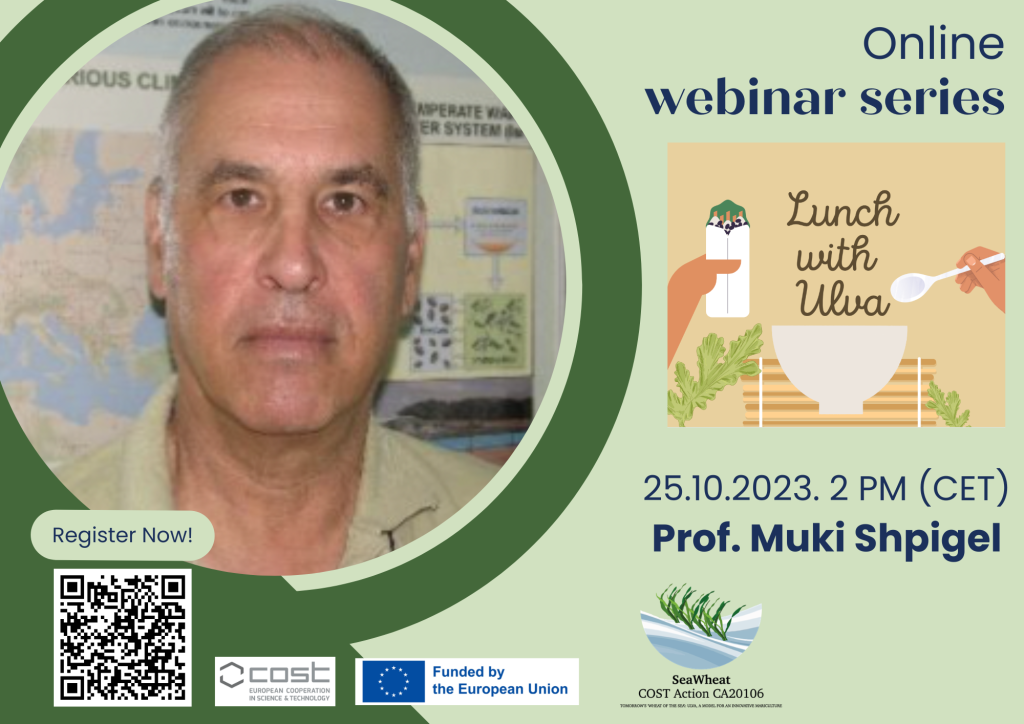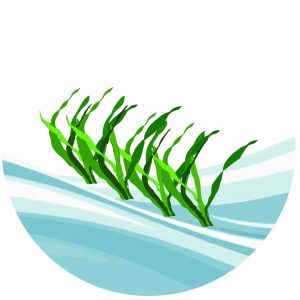Prof. Muki Spiegel
Abstract:
The scarcity of freshwater, overfishing and declining ocean biodiversity, marine eutrophication by anthropogenic activities, and the increasing demand for seafood have all required attention from a more comprehensive, global perspective. Moving from conventional aquaculture toward an ecological approach to developing and managing a sustainable aquaculture that cares for environmental and sociological aspects can relieve at least some of these problematic issues. Nutrient removal using Integrated Multi-Trophic Aquaculture (IMTA) Systems is a promising ecological approach for sustainable aquaculture. The rationale behind the IMTA systems is to convert the excretions of the organisms cultured upstream into valuable food for the organisms cultured downstream. In marine IMTA systems, seaweed has a high capacity for nutrient uptake per unit of culture area and can be an essential additional valuable product. In addition to nutrient removal by the green seaweed Ulva lactuca, the IMTA system proved to be a reliable source of sustainable biomass for human consumption, animal feed and high-value by-products for the food additive industries.

